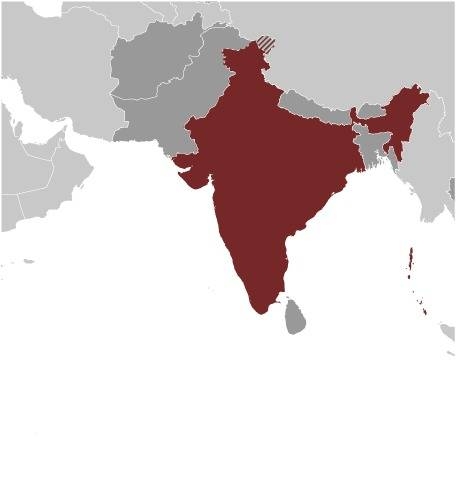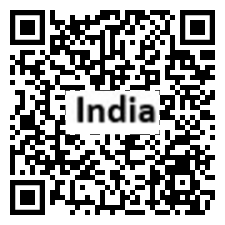Country Summary




Introduction
Background
The Indus Valley civilization, one of the world's oldest, flourished during the 3rd and 2nd millennia B.C. and extended into northwestern India. By the 19th century, Great Britain had become the dominant political power on the subcontinent and India was seen as the "Jewel in the Crown" of the British Empire. Years of nonviolent resistance to British rule eventually resulted in Indian independence in 1947.
Geography
Area
total: 3,287,263 sq km
land: 2,973,193 sq km
water: 314,070 sq km
Climate
varies from tropical monsoon in south to temperate in north
Natural resources
coal (fourth-largest reserves in the world), antimony, iron ore, lead, manganese, mica, bauxite, rare earth elements, titanium ore, chromite, natural gas, diamonds, petroleum, limestone, arable land
People and Society
Population
1,389,637,446 (2022 est.)
Ethnic groups
Indo-Aryan 72%, Dravidian 25%, and other 3% (2000)
Languages
Hindi 43.6%, Bengali 8%, Marathi 6.9%, Telugu 6.7%, Tamil 5.7%, Gujarati 4.6%, Urdu 4.2%, Kannada 3.6%, Odia 3.1%, Malayalam 2.9%, Punjabi 2.7%, Assamese 1.3%, Maithili 1.1%, other 5.6%; note - English enjoys the status of subsidiary official language but is the most important language for national, political, and commercial communication; there are 22 other officially recognized languages: Assamese, Bengali, Bodo, Dogri, Gujarati, Hindi, Kannada, Kashmiri, Konkani, Maithili, Malayalam, Manipuri, Marathi, Nepali, Odia, Punjabi, Sanskrit, Santali, Sindhi, Tamil, Telugu, Urdu; Hindustani is a popular variant of Hindi/Urdu spoken widely throughout northern India but is not an official language (2011 est.)
Religions
Hindu 79.8%, Muslim 14.2%, Christian 2.3%, Sikh 1.7%, other and unspecified 2% (2011 est.)
Population growth rate
0.67% (2022 est.)
Government
Government type
federal parliamentary republic
Capital
name: New Delhi
Executive branch
chief of state: President Droupadi MURMU (since 25 July 2022); Vice President Jagdeep DHANKHAR (since 11 August 2022)
head of government: Prime Minister Narendra MODI (since 26 May 2014)
Legislative branch
description: bicameral Parliament or Sansad consists of:
Council of States or Rajya Sabha (245 seats; 233 members indirectly elected by state and territorial assemblies by proportional representation vote and 12 members appointed by the president; members serve 6-year terms with one-third of the membership renewed every 2 years at various dates)
House of the People or Lok Sabha (545 seats; 543 members directly elected in single-seat constituencies by simple majority vote and 2 appointed by the president; members serve 5-year terms)
Economy
Economic overview
largest South Asian economy; still informal domestic economies; COVID-19 reversed both economic growth and poverty reduction; credit access weaknesses contributing to lower private consumption and inflation; new social and infrastructure equity efforts
Real GDP (purchasing power parity)
$8.443 trillion (2020 est.)
Real GDP per capita
$6,100 (2020 est.)
Agricultural products
sugar cane, rice, wheat, buffalo milk, milk, potatoes, vegetables, bananas, maize, mangoes/guavas
Industries
textiles, chemicals, food processing, steel, transportation equipment, cement, mining, petroleum, machinery, software, pharmaceuticals
Exports
$484.95 billion (2020 est.)
Exports - partners
United States 17%, United Arab Emirates 9%, China 5% (2019)
Exports - commodities
refined petroleum, diamonds, packaged medicines, jewelry, cars (2019)
Imports
$493.18 billion (2020 est.)
Imports - partners
China 15%, United States 7%, United Arab Emirates 6%, Saudi Arabia 5% (2019)
Imports - commodities
crude petroleum, gold, coal, diamonds, natural gas (2019)
Exchange rates
Indian rupees (INR) per US dollar -
Page last updated: Tuesday, December 13, 2022
